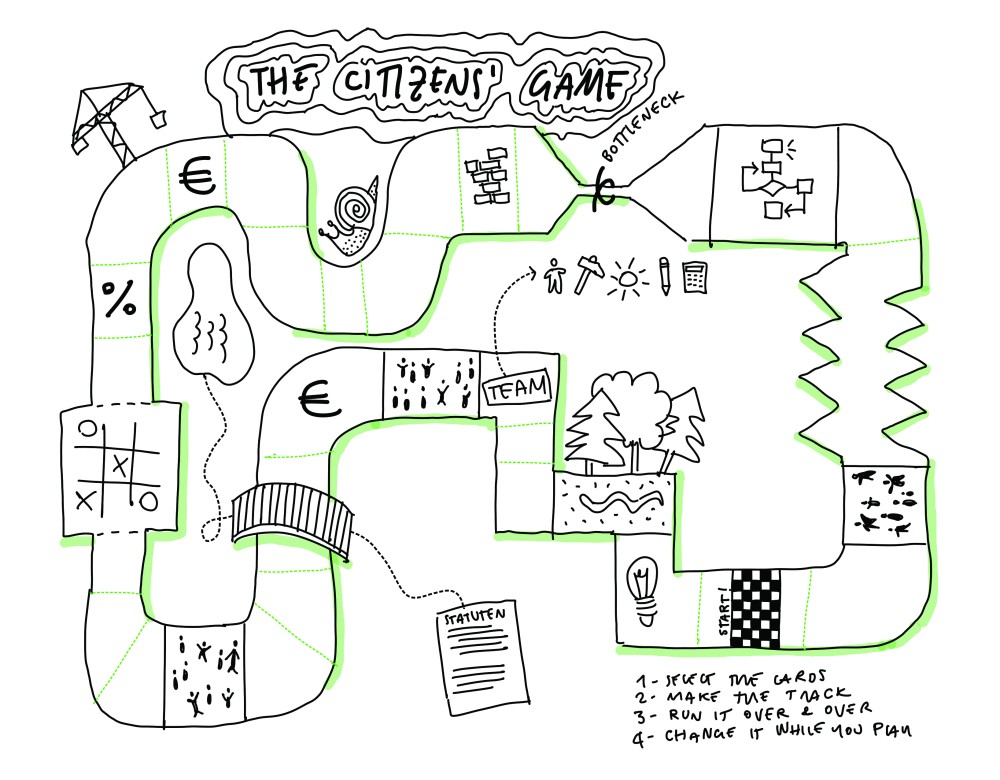With the research project The Citizen's Game we have created a toolbox aimed at transferring knowledge from experts to citizens' initiatives who will self-develop their own housing cooperatives. In collaboration with all the advisers and the housing cooperatives involved we tried to imagine how a simple and accessible educational board game could be designed. The Citizen's Game is a board game aimed at creating a process map that initiatives can use to reflect on their development process with a fun but rich activity.
In parallel to the contingent research activities, the project aimed at the professionalisation of Time to Access by acquiring specific knowledge on the topic, expanding our network, and further positioning ourselves in the architectural field. The project combines theoretical and applied research around four case studies from the landscape of housing cooperatives in the Netherlands, namely de Nieuwe Meent, Vrijcoop, Iewan and het Nieuwe Bajesdorp.
In collaboration with all the advisers and the housing cooperatives involved we tried to imagine how a simple and accessible educational board game could be designed. The Citizen's Game is a board game aimed at creating a process map that initiatives can use to reflect on their development process with a fun but rich activity.
The game we envisioned is made of a series of squared cards, each representing a fragment of the project (for example: talking with the bank, selecting a certain number of members, codesign the collective spaces, decide core values, etc.) there are also curves and zig-zag cards that represent turning points and bottlenecks. You can play with a minimum of four players. The first step of the game is to assign roles, one person plays the government, one plays the financers, one plays the technical advisers, one (or more than one if there are) plays the cooperative members. The housing cooperative has all the cards in their own hands, the game proceeds with a constant negotiation between members of the cooperative and with the other stakeholders and the scope is to build-up the circuit that represents the development process, from initiation phase until the construction of the building. The goal is the negotiation, and the creation of a roadmap.
TEAM
Commons and urban planning - Federico Savini, UVA
Finance and cooperation - Jasper Klapwijk, Kantelingen
